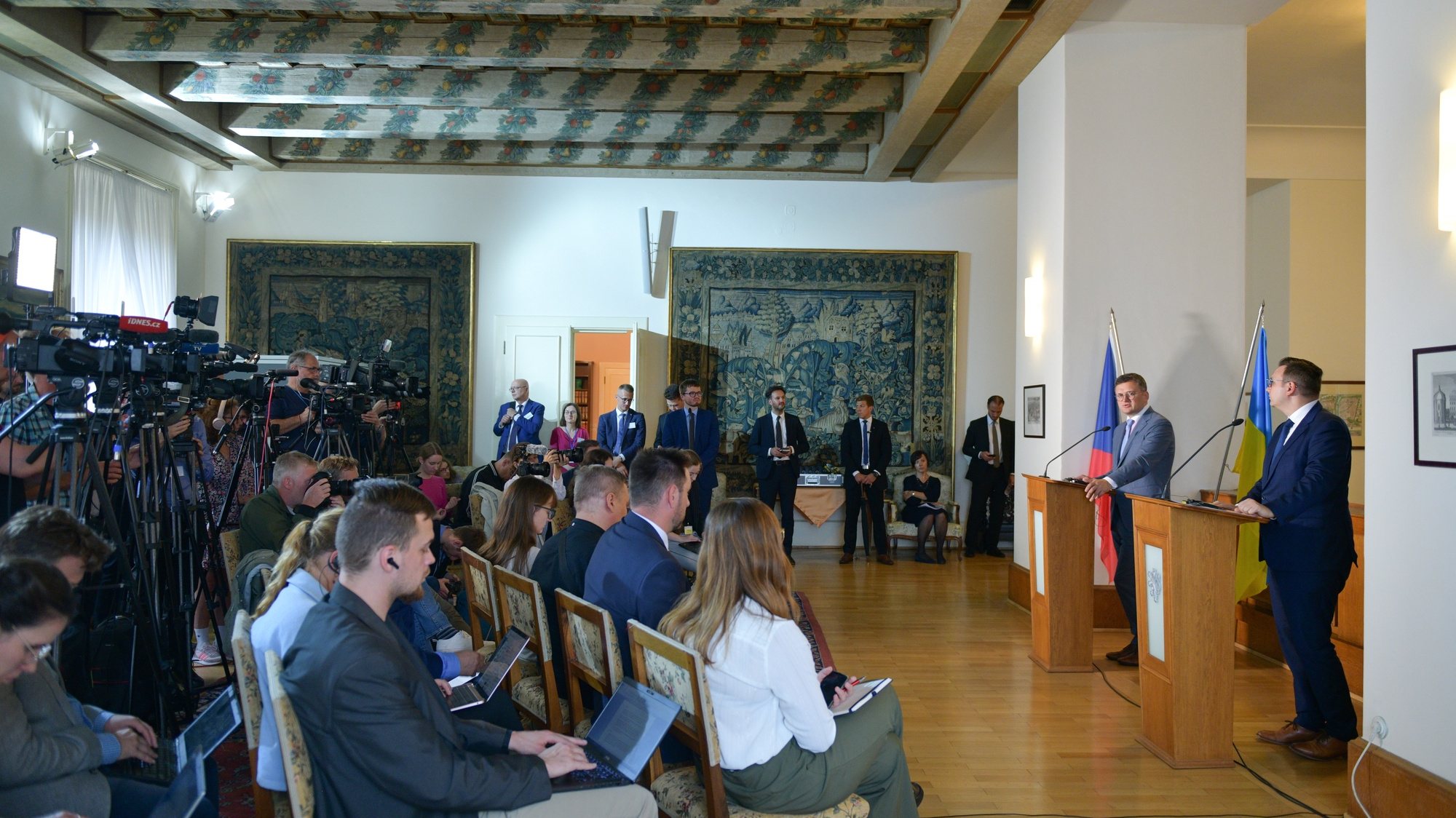Follow our live blog about the war in Ukraine here.
The head of Ukrainian diplomacy, Dmytro Kuleba, urged this Monday in Prague to no extension in the eastern countries of the European Union (Hungary, Poland, Bulgaria, Romania and Slovakia) of the temporary ban on Ukrainian grain imports that will end next month.
“We are clearly against [o prolongamento dessa proibição de importar cereais]Kuleba said at a press conference, after meeting his Czech counterpart, Jan Lipavsky.
The Minister of Foreign Affairs of Ukraine referred to the intention of the five mentioned countries to extend until the end of the year the ban on importing duty-free Ukrainian cereals.
Location point. What happened during the 551st day of the war in Ukraine?
These Ukrainian agricultural products remained on the markets of these five countries at prices considerably less than those that can be practiced by local producers, instead of reaching other Member States of the European Union (EU) or third countries outside the Community.
The veto, granted by the EU last spring, means that Ukrainian cereals can transit through Bulgaria, Hungary, Poland, Romania and Slovakia (but not be sold there) to be marketed in other member states or go to countries or territories outside the EU.
Dmytro Kuleba considered that the ban “violates the EU-Ukraine association treaty and, above all, it goes against the principle of solidarity that is the cornerstone of the EU”.
He also warned that complicates the exit of cereals from his countryRussia, which is already in serious difficulties since Russia in July abandoned the agreement reached a year earlier to facilitate food exports from Ukraine’s Black Sea ports to international markets.
Russian security services detain a former US consular official Russian citizen.
Already last May, after the ban on trade in corn, wheat, rapeseed, sunflower oil and sunflower seeds in the five eastern EU member states came into force, Ukraine’s primary sector began to encounter great difficulties transporting grain out of the country.
“We call on countries not to turn the issue of wheat exports into a hostage to its internal political processKuleba said.
While thanking the military and humanitarian aid provided to kyiv by these same community partners, the minister stressed that his country will fight to “defend” their rights, without specifying how.
“Should the restrictions continue, they will leave us no choice but to stand up for our rights and the rights of our farmers, and we want to avoid this situation wholeheartedly”, he stated.
On February 24, 2022, Russia launched a military offensive in Ukraine that lasts more than 18 months.
The invasion – justified by Russian President Vladimir Putin as the need to “denazify” and demilitarize Ukraine for Russia’s security – was condemned by the broader international community, which has responded by sending weapons to Ukraine and imposing Russian policies and economic. sanctions.
Landmines, the problem that is delaying the counteroffensive and killing civilians in Ukraine. “We have work for the next 20 years”
Source: Observadora
